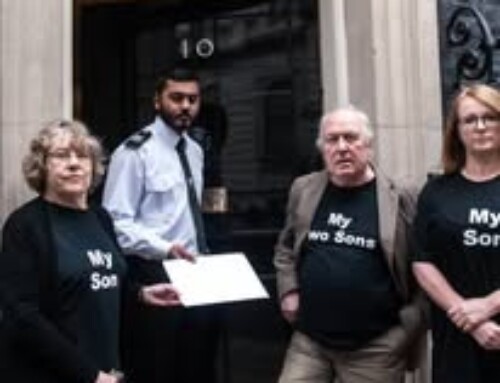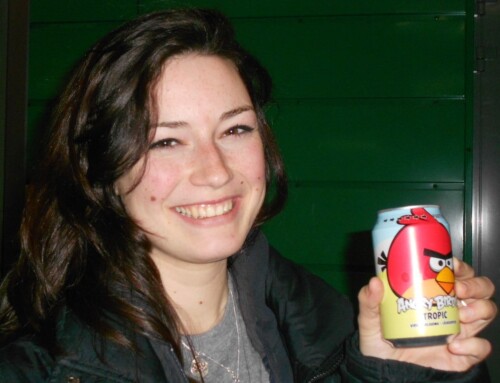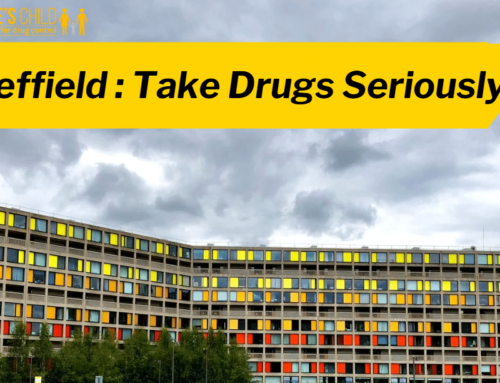 This blog is written by Anyone’s Child member Hope Humphreys.
This blog is written by Anyone’s Child member Hope Humphreys.
A truth, universally acknowledged, is that laws are there to keep us safer. But is it true? What about UK Drug Laws? The Government doesn’t approve of drugs. People must not use them, end of, and there are strict, punitive, policies to stop us.
But wait, there’s one drug, more harmful probably than all the others, that they have no problem with. It brings in lots of revenue, and in spite of its many dangers, is socially acceptable. Having a drop too much, can be fun, even funny, and rather adorable, really, getting a bit tipsy. And everyone, especially the lads, must overdo it once and awhile, to learn how to hold their drink, to be men. It’s a right of passage, it’s normal, there’s no harm in it. Actually, there can be a lot of harm in it but, hey, don’t get all sanctimonious, don’t be a spoil-sport. Most of us like a drop or two, and imagine a wedding without champagne, or a football match without beer, and how could we flambé that steak without a bit of brandy? Yes, we Brits love our booze.
But other drugs, good grief, no! They turn you into zombies, they mush your brain. You either become violent and kill, or sad and self-destructive. Just one puff or snort and you’ve had it. Drugs ruin lives, destroy communities. They are evil. But is it true?
The trouble is, it’s both true and a lie. Drugs that aren’t Government approved, have, like everything, some potential dangers. In spite of draconian punishment, sanctioned by law, drugs are not going away, and a huge number of people use them. They enjoy these drugs and the vast majority come to little harm. Anyone who wants any drug, can get hold of it in minutes, and they do. Drug gangs are deliriously happy that they alone can meet this never-ending demand. Sure, they may get a bit violent at times, protecting their trade, but that’s business. To help boost sales, dealers can easily find plenty of young, vulnerable, expendable people on hand. They don’t have to bother much about the content or strength of their products either, profit is all, but it’s bad practice to kill off valuable customers, so they avoid it whenever possible.
As alcohol is the Government’s preferred drug, and, because they know it can be harmful, safeguards are in place. Selling to those under eighteen is illegal, the strength must be shown on the bottle, and there’s helpful advice on safe amounts. With other drugs, it’s a free for all. They are unregulated, out of control and out there. No safeguards whatsoever. They are even available in prison while you are inside for possessing them.
The tragic truth is that the Drug Laws do more harm than the drugs themselves.
If a teenager is caught with a bit of cannabis she can get a criminal record which will affect her life forever. It will get in the way of job prospects, restrict where she can travel, the whole shape of her life changes overnight. What about the student caught taking a turn to get some ecstasy for his adult friends who want to go clubbing? Here, things get much more brutal. He can be sent to prison for several years as the law finds it difficult to differentiate between him and the head of a drug cartel. A sledgehammer smashes his future in one blow and it’s a life sentence. There will never be a complete recovery.
But it gets even worse. Teenagers die because the Government gifts the supply of drugs to criminals. These young people are bright, with enquiring minds, eager to see, taste, try, all that life offers. Drugs are there, like it or not, and many will experiment. As one bereaved mother said: “My daughter didn’t want to die, she wanted to get high.” She was fifteen when she overdosed on ecstasy. The young are dying of disobedience. Are they just collateral damage of unscientific, inhumane policy?
Some people have difficult lives. Many have mental health issues, others suffer poverty, trauma, or abuse. They may turn to something that won’t cure them, but makes life bearable. Often this is alcohol or other drugs. They need help, not stigmatisation and punishment. Sadly, the right kind of care for problematic drug use can be difficult to find. Many things that would help are not available, or not allowed in the UK. It can be difficult to get drugs checked and the Home Office has recently made it even harder, insisting on an expensive licence. Drug consumption rooms, which save lives all over the world, are illegal in the UK. It’s near impossible to get heroin assisted treatment, used so successfully in Switzerland. Everything, the law especially, is against you if you use or have a problem with drugs in the UK. Yet, in spite of this, the Government continues to insist their policy works and that even stricter laws and harsher punishment are the way to go.
For over fifty years now, we have had drug prohibition in the UK. Can many, even in the Government, still believe it works? Is spending all that money on policing, the criminal justice system and prisons, really the best way to go? Would it be better to bring the supply of drugs under legal regulation and control? Could the money saved be better spent on education, on help, and on support, if needed? There is positive drug law reform in many countries which puts health and life first, but the UK remains tragically, immovable.
How much longer will the UK Government continue to inflict such avoidable, life-changing injuries on their citizens? Why do they do it? The Government has a choice. It’s time for them to make the right one and make us all safer.



Leave A Comment